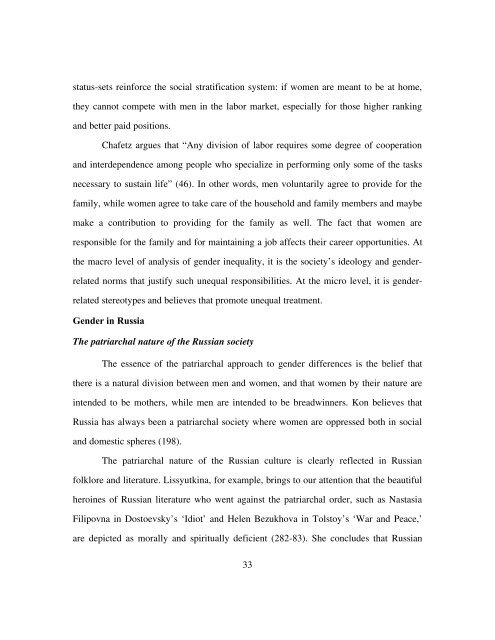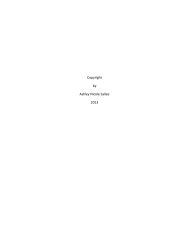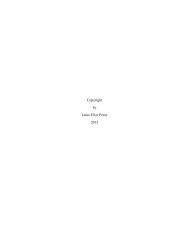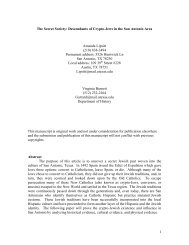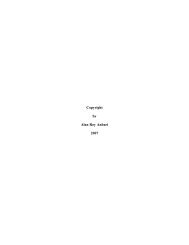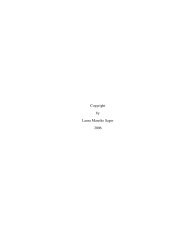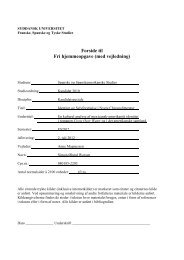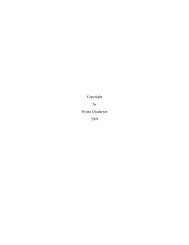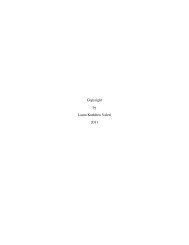Copyright by Tatiana Borisovna Segura 2008 - The University of ...
Copyright by Tatiana Borisovna Segura 2008 - The University of ...
Copyright by Tatiana Borisovna Segura 2008 - The University of ...
You also want an ePaper? Increase the reach of your titles
YUMPU automatically turns print PDFs into web optimized ePapers that Google loves.
status-sets reinforce the social stratification system: if women are meant to be at home,<br />
they cannot compete with men in the labor market, especially for those higher ranking<br />
and better paid positions.<br />
Chafetz argues that “Any division <strong>of</strong> labor requires some degree <strong>of</strong> cooperation<br />
and interdependence among people who specialize in performing only some <strong>of</strong> the tasks<br />
necessary to sustain life” (46). In other words, men voluntarily agree to provide for the<br />
family, while women agree to take care <strong>of</strong> the household and family members and maybe<br />
make a contribution to providing for the family as well. <strong>The</strong> fact that women are<br />
responsible for the family and for maintaining a job affects their career opportunities. At<br />
the macro level <strong>of</strong> analysis <strong>of</strong> gender inequality, it is the society’s ideology and gender-<br />
related norms that justify such unequal responsibilities. At the micro level, it is gender-<br />
related stereotypes and believes that promote unequal treatment.<br />
Gender in Russia<br />
<strong>The</strong> patriarchal nature <strong>of</strong> the Russian society<br />
<strong>The</strong> essence <strong>of</strong> the patriarchal approach to gender differences is the belief that<br />
there is a natural division between men and women, and that women <strong>by</strong> their nature are<br />
intended to be mothers, while men are intended to be breadwinners. Kon believes that<br />
Russia has always been a patriarchal society where women are oppressed both in social<br />
and domestic spheres (198).<br />
<strong>The</strong> patriarchal nature <strong>of</strong> the Russian culture is clearly reflected in Russian<br />
folklore and literature. Lissyutkina, for example, brings to our attention that the beautiful<br />
heroines <strong>of</strong> Russian literature who went against the patriarchal order, such as Nastasia<br />
Filipovna in Dostoevsky’s ‘Idiot’ and Helen Bezukhova in Tolstoy’s ‘War and Peace,’<br />
are depicted as morally and spiritually deficient (282-83). She concludes that Russian<br />
33


